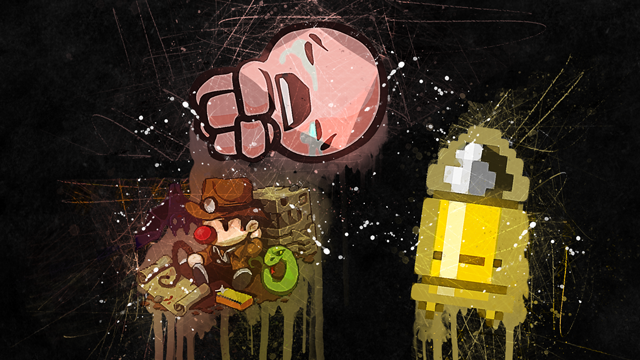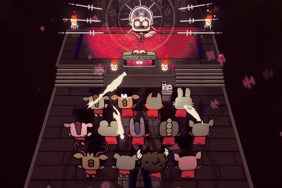Hot Takes Friday is a column where the GR staff and community sound off with their strong, but perhaps unpopular, opinions. Let us know your thoughts on this week’s Hot Take in the comments section below!
If you’re an indie studio these days, chances are you’re making either a 2D platformer, a battle royale, or a roguelike game. The roguelike genre has been pretty huge for a few years now, with the likes of Spelunky, The Binding of Isaac, and Enter the Gungeon garnering explosive followings. Especially with the latter of those three, I got pretty excited in the lead-up to its launch But like with seemingly every other roguelike game, I quickly grew bored.
For a genre that prides itself in replayability, there are few roguelike games outside of limited exceptions that really grab me past the first couple of hours. But why? I’ve often offhandedly thought about this, but until actually sitting down and pondering just why I don’t get on with the genre 90% of the time, I’d never come to a definitive explanation. I’ve done just that, however, and I think it might be something to do with the fact that I’m autistic.
I have quite a few friends who themselves have autism, and repetitive roguelike games like The Binding of Isaac are usually held in quite high regard. The consistent expectation of the gameplay loop and the ability to experience the game in short or long bursts can feel quite satisfying for someone with autism. For me, however, it’s slightly different – I like the consistency that you get when playing roguelike games, but something else that I particularly enjoy is a clear sign of in-game progress.
With a majority of roguelike games, you enter the procedurally-generated dungeon, go for as long as you can, die, and start again from the very beginning. The layout may change with every game, but it more or less follows the same pattern. When I play a game, I like to see a clear sign of progress, outside of my own performance improvement. I need something to keep me committed, a visual representation of how far I’ve come since I started. Oftentimes, roguelikes don’t provide this.
Some have skill trees, persistent items and currency, and unlockable costumes – but for me, this simply isn’t enough. Without a more substantial hook, I rapidly lose interest. Which is why the few exceptions that actually keep me invested do something very different, like Darkest Dungeon. At its core, the gameplay cycle is entering a dungeon and toughing it out for as long as you can, with this process repeating. But you maintain a roster of characters, level them up, all while maintaining a home base.
As well as this tracking of progress, the very fact that Darkest Dungeon’s gameplay incorporates party and resource management into its framework alongside the standard roguelike gameplay ensures that I don’t feel like the longer I play, the further I sink into a never-ending abyss where the only out is my own demise; at least, not in a bad way.
Roguelikes need to evolve past the part-and-parcel loop that they’re all so used to, and innovate into more creative and complex iterations. Darkest Dungeon is only one example of the genre’s potential to offer more, without diminishing what makes it so appealing.











